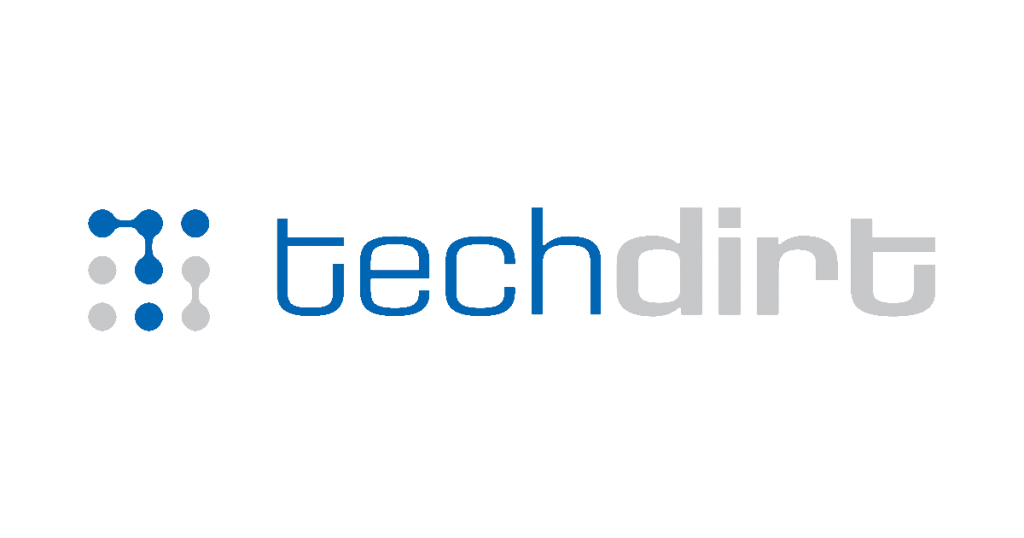from the please-pay-me-billions-of-dollars-for-no-sensible-reason dept
Telecom lobbyists have been working overtime in both the US and EU, trying to get policymakers to support the idea of “Big Tech” paying “Big Telecom” billions of additional dollars for no coherent reason.
This taxation effort always involves some variant of the claim that popular tech services are getting a “free ride” on the Internet, so it’s “only fair” that they help pay telecom giants for broadband expansion. What’s portrayed as a good faith effort to bridge the digital divide is, however, a several decade old quest by telecom monopolies to force tech companies to pay them billions of dollars in additional subsidies they haven’t earned and most certainly don’t deserve.
With the EU considering putting this idea into standard practice, it has gotten to the point where tech giants (like Google did recently) have been forced do go on the public defensive of late. This week it was Netflix’s turn, writing a piece in the Financial Times about how it invests billions of dollars in bandwidth and publicly beneficial infrastructure, and that the EU should discard renewed calls from telecom giants (and the captured regulators who love them) to impose an additional usage tax:
We’ve invested more than $1bn in our content delivery network called Open Connect, which we offer free to ISPs. We have 18,000 servers containing our content in 6,000 locations (and growing) across 175 countries. So when consumers press play, the film or TV show is streamed from around the corner — reducing traffic and costs for operators around the world, while also ensuring the highest quality, no-lag experience for our members.
The root of this whole dumb thing began around 2002, when AT&T demanded that companies like Google should pay them extra (on top of all the money Google and its users already pay for bandwidth)… just because. The empty request effectively began the net neutrality wars, and while it often gets dressed up as serious policy (under names like “sender pays” or “sponsored data”) by telecom think tankers, it’s basically just a handout to a telecom industry with a history of subsidy fraud.
Amusingly, Netflix tries to claim all of this was settled when net neutrality “won the day”:
Old arguments die hard. A decade ago, policymakers on both sides of the Atlantic were consumed by a debate about who should foot the bill for the infrastructure that powers the internet. On one side, telecoms companies argued that content providers were “freeriding” on their infrastructure and should pay more. On the other, a coalition led by civil society and consumer groups was lobbying for an open and interoperable web. Ultimately, plans for internet tolls were shelved and “net neutrality” won the day.
But obviously here in the States net neutrality didn’t “win the day.” Net neutrality rules were stripped away by telecom lobbyists using a bevy of sleazy tactics and false claims. Something that wasn’t helped by the fact that Netflix stopped meaningfully supporting net neutrality once it became rich and powerful enough to stop worrying about being bullied by telecom giants.
And in South Korea net neutrality certainly hasn’t “won the day.” South Korean ISPs managed to convince regulators this regulatory framework was a good idea. As a result, those same ISPs now demand that Netflix owes them additional money just because Squid Game was popular.
Netflix subscribers (who also already pay for bandwidth) demanded that content. The idea that telecom giants deserve extra money just because subscribers like something and streamed it over bandwidth numerous parties already paid for is completely preposterous and flies in the face of how telecom infrastructure and bandwidth works. That hasn’t stopped telecom giants and some regulators (like the FCC’s Brendan Carr here in the US) from framing this as an adult, serious policy proposal.
While I doubt there will be much self-reflection at the new Netflix, softening its stance on net neutrality didn’t work out well for the company. Now they’re back trying to fend off calls for the same sort of double dipping that began the whole net neutrality fight decades earlier:
Taxing entertainment and media companies to subsidise telcos was a bad idea in 2012, and the same is true today. We need to move on from the debates of yesteryear and recognise that when we work together, and both invest in our respective strengths, we all thrive.
As we’ve noted several times now, the politicians and regulators whom telecom companies have gotten to sign off on this effort usually aren’t actually interested in “bridging the digital divide.” If they were, they’d start with reforming the billions in wasted subsidies and tax breaks thrown at telecom giants every year in exchange for next-gen fiber broadband networks that are, mysteriously, almost always half-delivered.
Once you’ve stopped giving telecom monopolies billions in tax breaks, regulatory favors, and subsidies in exchange for networks they only half-deliver, maybe then you could have a serious conversation about expanding broadband funding’s contribution base. Until then, you’re just signing off on throwing even more money at an industry with a global reputation for anti-competitive behavior and fraud.
Filed Under: big telecom, digital divide, eu, high speed internet, infrastructure, net neutrality, sender pays, telecom
Companies: netflix
Source by www.techdirt.com
